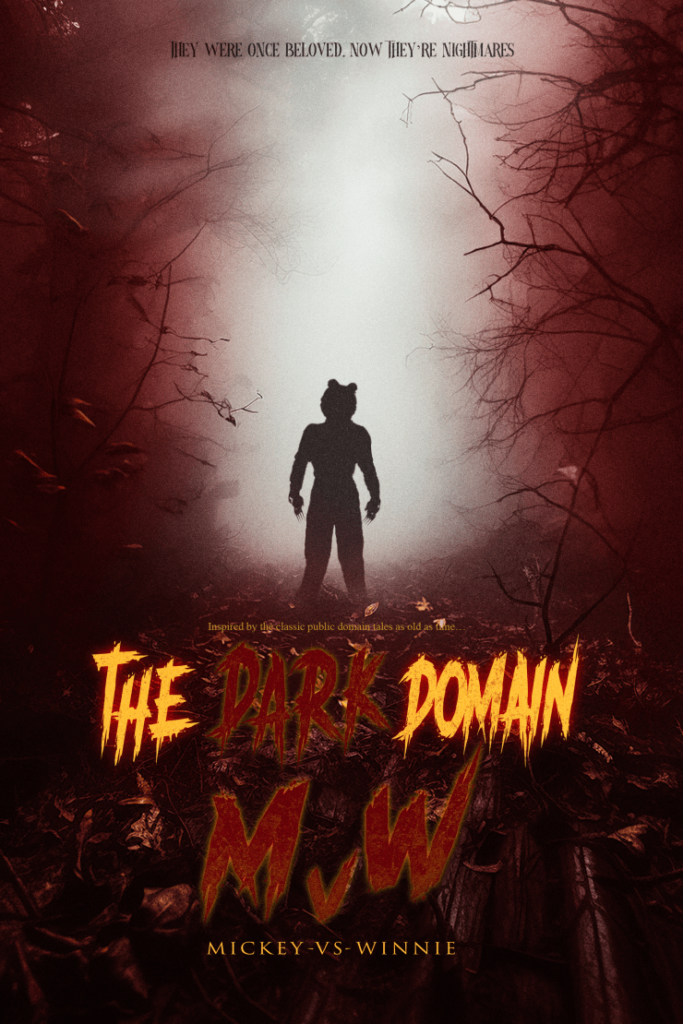AMC’s “Immortal Universe” gets a little bigger with the Talamasca, a secret society of supernatural movers and shakers who add espionage and intrigue to gothic horror.
“The power in our world isn’t blood, or fangs, or magic. It’s information.”
An interesting trend has cropped up over the past few years that takes advantage of fandom’s need for never-ending stories. A single series that doesn’t at least speculate on what a sprawling connected universe would look like is tantamount to failure in some cases. Extended lore that can branch off and do its own thing has never been more valuable. There’s an influx of spin-off series that center around the shadowy organizations that fuel these heightened universes, whether it’s a Continental show for John Wick, a Treadstone series from the Bourne franchise, or Monarch: Legacy of Monsters.
These spin-offs, at worst, feel like vestigial franchise limbs that merely pollute their IPs. However, there are times when these endeavors actually bear fruit and naturally expand upon their respective universes. AMC has been parading around the whole “Immortal Universe” moniker that’s been anchored to Interview with the Vampire. Talamasca: The Secret Order isn’t the first case of world-building in this domain, but it’s arguably the most important. There’s a lot riding on this series’ success and the viability of AMC’s “Immortal Universe.“ Interview with the Vampire has proven itself one hundred times over, but Mayfair Witches has been considerably more disposable. Audiences have made it clear that they’re along for the ride with Lestat, but do the supernatural swashbuckling adventures of the Order of the Talamasca enough to last several seasons and build upon Interview with the Vampire’s backbone?
The new series tries to connect these disparate Anne Rice dots and do something bigger with all this. The Secret Order’s compulsion to flesh out its grander universe is frequently the most interesting and most infuriating aspect of the series. Thankfully, there’s still more than enough to bite off in Anne Rice’s Talamasca: The Secret Order so that it feels like a distinct entity — with unique genre sensibilities — and not just the latest piece of AMC’s corporate-driven piece of vampire synergy.

Nicholas Denton as Guy Anatole – Talamasca Season 1, Episode 2 – Photo Credit: David Gennard/AMC
Season one is an interesting beast that mixes the supernatural with suspenseful espionage. It’s Anne Rice by way of Stieg Larsson as this secret society indulges in cloak-and-dagger drama. There are plenty of moments where this feels reminiscent of Evil or even what a Scanners series would look like. Talamasca is unique from the rest of the Immortal Universe in the sense that it’s not directly based on any specific novels. It has the freedom to creatively riff on the narrative benchmarks that Anne Rice has established, which is not necessarily possible in Interview with the Vampire and Mayfair Witches.
Talamasca: The Secret Order introduces this covert cabal through the fresh eyes of Guy Anatole (Nicholas Denton), who is as confounded by the Talamasca as the audience is. Guy takes a minute to click and initially feels a little too much like a Suits character who is caught in an Anne Rice universe. Guy is on the Talamasca’s radar in the first place because of burgeoning psychic powers that he’s still learning how to control. Guy’s ability isn’t exactly handled gracefully, which becomes an early indication that this series lacks Interview with the Vampire’s subtlety. Even just the circumstances that lead to Guy’s indoctrination into the Talamasca’s inner circle feel contrived and mundane, albeit believable.

Nicholas Denton as Guy Anatole – Talamasca Season 1 – Photo Credit: David Gennard/AMC
Guy is entertaining to watch because he at first feels so out of his depth and like he’s scrambling for air through much of the season. Talamasca does a really solid job at making Guy inscrutable and unclear where his true interests lie. There’s a lot of satisfying tension that comes from Guy’s attempts to play these opposing factions against one another, hoping not to get swallowed whole in the process. These six episodes also subject Guy to toxic relationships that leave him manipulated and deceived, comparable to Interview with the Vampire’s unhealthy bonds. There’s no romantic element to these relationships, but Guy is put through just as emotional a wringer. Family is instead a major connective tissue throughout the series that motivates many of these wounded characters. It’s still a bummer that there’s such a lack of sexual tension between any of these characters. That’s like 70% of Anne Rice, and it’s sorely missing here, even though the series makes sure that everyone is still very good-looking.
Céline Buckens, Elizabeth McGovern, and Maisie Richardson-Sellers round out the rest of the cast. That being said, it’s William Fichtner’s Jasper and other guest actors like Jason Schwartzman and Justin Kirk that leave the most notable impressions. They all chew up scenery in the best way possible. Kirk is slimy, smarmy fun, while Fichtner’s Jasper becomes genuinely terrifying by the season’s end. He channels a really palpable rage. Immortal freaks aside, there are unfortunately some detective characters who are such dead weight and consistently drag down momentum whenever they’re present.

William Fichtner as Jasper – Talamasca Season 1, Episode 4 – Photo Credit: David Gennard/AMC
The inaugural season spends lots of time plotting conspiracies. It also reminds the audience that vampires, along with other creatures that go bump in the night, are real monsters. This series isn’t afraid to get vicious when it needs to, and there are some brutal scenes where the vampires let loose and let the arteries spray. These six episodes also present a grander mystery – the 752 – as the season’s focal point and the reason for Guy’s introduction to all this. The 752 is a massive codex of all the Talamasca’s research since their inception in 752 AD. The 752 will basically decide if the Talamasca continues to amass power in the shadows or if this esteemed group can finally be eliminated.
Control of the 752 is basically control of the world’s whole supernatural narrative, which turns its ownership into a deeper deconstruction of information and censorship. This hits even harder and feels extremely relevant during a time when the preservation of the truth and the toxic manipulation of information are more important than ever. Members of the Talamasca start getting assassinated as the 752 is threatened, all while Guy worries if he’s working with the good guys in this war or if he’s helping malevolent forces strengthen their stranglehold on society. This leads to deeper thematic questions throughout the season regarding whether the world is inherently good or evil, and if it’s possible to rebalance the scales, or if it’s a futile and dangerous effort.
Talamasca: The Secret Order is hitting all its marks by the end of the season. It’s just a little surprising how much the first two episodes struggle. So much of the premiere is bogged down in exposition as Guy debates whether he should join Talamasca or not. This in itself feels pretty artificial because, of course, he’s going to join it. In a season that’s only six episodes long, pacing can be a big problem. Talamasca begins on a laborious note and then stumbles to grab the audience’s attention outside of a few perfunctory action sequences that bookend the premiere. With only six episodes, Talamasca often feels more like a proof of concept or extended prologue than a proper first season. A second season will presumably be much bolder and longer, with more room to experiment and grow.

Laura Lake as Revenant – Talamasca Season 1, Episode 5 – Photo Credit: David Gennard/AMC
As it stands, Talamasca: The Secret Order doesn’t bite off more than it can chew, but it also feels like these six episodes could have accomplished a lot more and justified their existence through bigger swings. Showrunner John Lee Hancock, who primarily comes from film, having written and directed projects like The Alamo, The Blind Side, and the adaptation of the Stephen King novella Mr. Harrigan’s Phone, has a clear point of view on all this. It’s just not as impressive or precise as what Rolin Jones taps into with Interview with the Vampire.
Talamasca lacks the same juice as Interview with the Vampire. It does, however, frequently trump what’s going on in Mayfair Witches. It’s a series that has so much room to grow, especially now that the heavy lifting of the first season is out of the way and there’s a foundation for this universe that can be built upon. Those who make it through the clunky introduction will likely be in for the long haul. Talamasca: The Secret Order is uniquely positioned to be a pivotal piece of the Immortal Universe’s puzzle with the right planning. These six episodes may seem non-essential, but the series has what it takes to become this franchise’s bloody black sheep. If nothing else, it’s a fine way to pass the time before The Vampire Lestat rewrites everyone’s brain chemistry.
The first two episodes of “Anne Rice’s Talamasca: The Secret Order“ premieres October 26 on AMC and AMC+ with weekly episodes to follow.

The post ‘Talamasca: The Secret Order’ Delivers Supernatural Spygames, Creatures, Codes & Conspiracies [Review] appeared first on Bloody Disgusting!.


